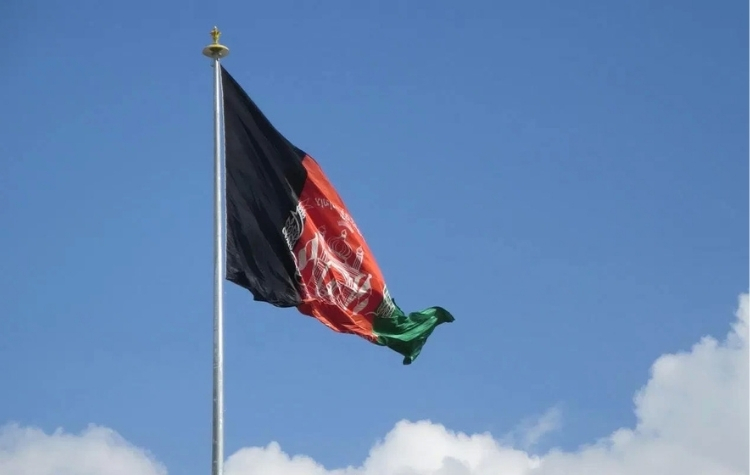For immediate release
17 August 2022, Bangkok
Reflecting on one year takeover of Afghanistan by the Taliban on 15 August 2021, the Asian Forum for Human Rights and Development (FORUM-ASIA), Safety and Risk Mitigation Organization (SRMO), and Afghanistan Human Rights Coordination Mechanism (AHRCM) organised a webinar to discuss the situation of human rights and human rights defenders in Afghanistan under Taliban’s de facto rule. The event convened United Nations special rapporteurs, Afghan human rights defenders, and civil society representatives.
With Taliban’s harsh restrictions on human rights, press freedom and access to information in Afghanistan, the support from the international community is vital for Afghan human rights defenders and civil society organisations.
Richard Bennet, UN Special Rapporteur on the situation of human rights in Afghanistan said, ‘it is key to keep the light shining, to develop Afghanistan human rights movements.’ Mary Lawlor, UN Special Rapporteur on the situation of human rights defenders added, ‘Afghan defenders both inside and outside the country are going to need allies as they attempt to hold the de facto authority to their obligations under international human rights law.’
Supporting Afghan defenders allows the Special Rapporteurs to better monitor, document and report violations of human rights in Afghanistan. It is also crucial that members of international community should support Afghans at risk.
Following the Taliban takeover of Afghanistan in August 2021, the human rights situation in the country has deteriorated rapidly and the civic space has almost completely shrunk. Afghan women are banned from education and travel, while peaceful protesters, defenders, journalists, bloggers, artists, and activists are highly suppressed. Members of the former government employees such as judges are killed or forcibly disappeared. In just the first six months of Taliban rule, around 500 former Afghan security forces and government officials were killed or forcibly disappeared.[1]
Forced displacements, and mass murder of ethno-religious groups especially the Shias, Hazaras, Sikhs and Hindus as well as Tajiks in Panjshir, Baghlan and Balkhab have happened on several occasions. Aziz Rafiee, Managing Director of Afghan Civil Society Forum, shared that in the past year, a total of 10,165 families were reportedly displaced. Moreover, Iran and Turkey have been forcibly deporting former Afghan government employees, defenders and other Afghans at risk, subjecting them to Taliban’s persecution.
Lack of accountability, false promises of amnesty and absence of the rule of law have worsened the already dire humanitarian crisis in Afghanistan. ‘Almost all legal frameworks and institutions to protect and monitor human rights in Afghanistan have been dissolved,’ said Horia Mosadiq, Founder of Safety and Risk Mitigation Organization.
Taliban have not fulfilled their commitment to the international human rights conventions and treaties, to which Afghanistan is a member or signatory. With no independent institutions existing, ‘[A Talib], individual member of Taliban, can act as police, prosecutor and judge at the same time,’ said Rafiee.
The event ended with a heartfelt account by a women’s rights defender and protester Nayera Kohistani on her arrest by the Taliban for her participation in protests, and how it impacted her and her family. Even in face of challenges and abuse, she did not stop to raise her voice and implore the international community to stand up in solidarity with the people of Afghanistan. ’It is our job to raise our voice to stand up against the Taliban and push for people to stand up, and fight for their rights, said Kohistani.
Farishta Sakhi, Senior Program Manager of Freedom House and representative from Afghanistan Human Rights Coordination Mechanism, added ’we mourned yesterday, we are still in the mourning phase. We lost so many things, so I hope you could do anything to console all the people who are currently in this dismal and dark situation.’
Recommendations
- Taliban should be pressured and held accountable to respect rights and freedoms of people of Afghanistan.
- International community should support Afghan human rights defenders and civil society organisations to continue working on human rights issues in Afghanistan.
- Members of the international community should open their borders for Afghans at risk seeking safety.
- Iran and Turkey should stop deporting Afghans at risk as they could be subject to persecution in Afghanistan.
- UN and other I/NGOs should continue their humanitarian support towards Afghans at risk
-END-
The Asian Forum for Human Rights and Development (FORUM-ASIA) is a network of 85 member organisations across 23 countries, mainly in Asia. Founded in 1991, FORUM-ASIA works to strengthen movements for human rights and sustainable development through research, advocacy, capacity development and solidarity actions in Asia and beyond. It has consultative status with the United Nations Economic and Social Council, and consultative relationship with the ASEAN Intergovernmental Commission on Human Rights. The FORUM-ASIA Secretariat is based in Bangkok, with offices in Jakarta, Geneva and Kathmandu. www.forum-asia.org
For media inquiries, please contact:
- Communications and Media Programme, FORUM-ASIA, [email protected]
[1] New York Times Report; 2022, https://www.nytimes.com/interactive/2022/04/12/opinion/taliban-afghanistan-revenge.html
**
For the PDF version of the press release, click here



